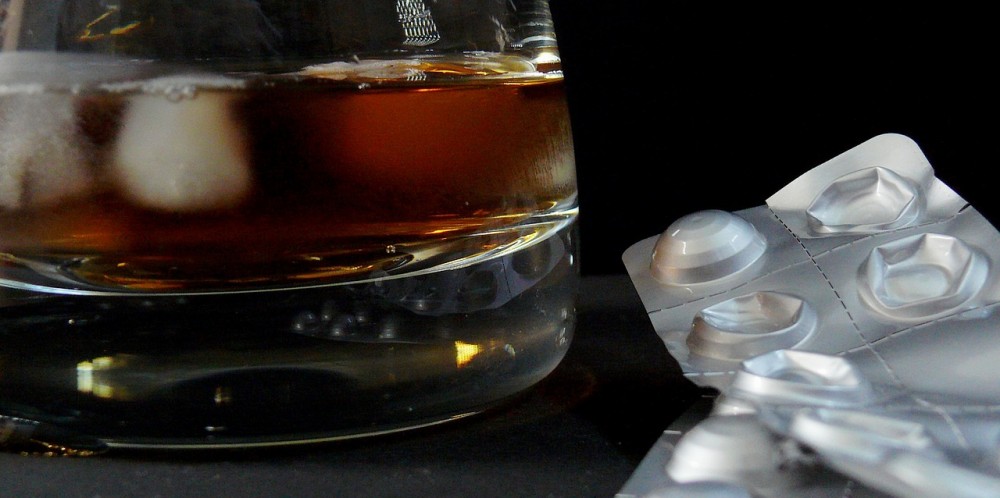Pressures and stress associated with their jobs amid the COVID-19 pandemic could subtly take its toll on the mental and physical health of uniformed personnel, driving some towards indulging in alcohol and substance abuse. ( Representative Image: moritz320 from Pixabay)

Atono Tsükrü Kense
Kohima | June 18
Uniformed personnel probably endure more stress than those in any other profession, as they are exposed to the most challenging occupational hazards including violence, distress, deaths and even cases of negative publicity.
Besides their routine duty, overtime shifts and grueling schedules prevents them from spending enough time with their families or even getting a proper rest and sleep, leaving them with traumatic lives.
All the pressures and stress associated with their jobs could eventually subtly take its toll on their mental and physical health driving some of the uniformed personnel towards indulging in alcohol and substance abuse.
At one press briefing, Kripa Foundation director, Abou Mere informed that on a daily basis one or two police personnel are getting registered for the Opioid Substitution Therapy (OST) programme in Kohima, ever since the lockdown was imposed.
Mere, who also runs a rehabilitation center for alcohol and substance abuse in Kohima, said the root cause of drugs and alcohol abuse is all the same – loneliness, work pressure, frustrations, not enough time with family etc.
As the police personnel are more stressful and away from family most of the time, he viewed that they are more vulnerable to drugs, alcohol and HIV. He also informed that their wives are found to be HIV reactive when tested.
A pastor of Police Baptist Church in Kohima informed that there are many uniform personnel who are addicted to substance and alcohol, and the Church often organises camps for them.
During the one-week camp organised last year, he said about 40 police personnel attended the camp. He however, viewed that camping alone doesn’t help some as they need help and support of rehabilitation center, to which many are unable to go due to financial constraints.
Senior psychiatrist based in Kohima, Dr P Ngully viewed that police personnel and all other front warriors are the most vulnerable and could be the most affected both mentally and physically during this COVID-19 pandemic.
Sharing his years of experience dealing and treating people with substance disorders, Dr Ngully said, “I found that people who use substance and alcohol substance sacrifice so many things in their lives - relationships, pain, stress, career etc.”
Although it becomes a disease when one becomes dependent on the substance, Dr Ngully found that “all these substances has actually some positive effect in the person who is using and it gives them a certain value of making them feel good, albeit temporary as it relieves them from fear, tension and psychological pain.”
Dr Ngully who was the state coordinator at that time when OST was first introduced in the state expressed delight that police personnel are coming forward for OST programme adding that in the OST programme they will be administered ‘legal drugs’ unlike the illegal substances they are taking.
“Though it will not give them the kick they desire, this will relieve them from withdrawal symptoms, which is often painful and distressful” said Dr Ngully and added that gradually this will win them over and in most cases, they will overcome their dependency.
Also referring to the incidences of assault cases by the police, he opined that when one is affected with high stress, it affect their sleep which in turn make a person ‘quite reactive and impulsive.’
A high ranking police officer admitted the presence of substance and alcohol abuse among the uniform personnel, and although the department is trying to help those people, he however, said it all depends on the will power of the person.
Apart from the basic duty of maintaining law and order, preventing crimes and responding to emergencies, he said the police personnel are overburdened and stressed with works outside the purview of the duties and responsibilities.
When enquired if the police personnel are overworked and stressful during this pandemic, he said it is the same as before and stated matter-of-fact that the jawans are unnecessarily attached with the VIPs who have to run around anytime of the day, sometimes without any rest and sleep.
“This kind of schedules and duties are often very stressful for the police personnel” said the police officer, and also informed that police personnel are even assigned for cooking in the quarantine centers and COVID hospitals this time.
No doubt a job in the law enforcement agency can be very challenging and stressful, and no matter how well they are being trained, they are vulnerable to stress related issues leading to substance and alcohol abuse.
Towards this end, Dr Ngully has advised that one should never ‘condemn or be judgmental’ towards any person dependent on substance and alcohol since “we don’t know the level of stress and pain the person could be facing or holding inside.”
“Sometimes stress may not come on their own but from family, relatives, higher-ups etc and when one is in such a stressful state, the person start looking forward to these substances for relief” explained Dr Ngully.






